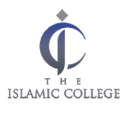HSD205 – Islam and Modernity
Course Overview
This module aims to introduce the theological implications of modern scientific theories in relation to traditional arguments for God’s existence and the strategies theists have adopted in responding to them. As such, students exploring and engaged with current debates about science and the existence of God. Moreover, it will review fundamental doctrines of Islamic theology as developed during the centuries under the allencompassing term kalam.
Module Info
- Syllabus
- Outcomes
- Strategy
- Material
sYLLABUS
- Conceptualising Modernity
- Tradition and Modernity within Islamic Civilisation and the West
- The Notions of ‘Islamic Science’ and ‘Islamisation of Science/Knowledge’
- Orientalism
- Muslim Scholars and the Issue of Modernity
- Interpretation of Islamic law in Modern Perspective
- Ijtihad and The dynamism and flexibility of Islamic law
- Abortion
- Genetic Screening
- Artificial Insemination
- Surrogacy and Cloning
- Organ Transplantation
- Brain Death and Euthanasia
- Islam and gender issues
Learning Outcomes
Knowledge
On completion of this module, the successful student will be able to:
- Evaluate the key issues in the modernity discourse (A4)
- Discuss intellectual efforts on the part of Muslim intellectuals and activists to adapt Islam to modern life (A6, B2, B5)
Skills
This module will call for the successful student to:
- Theorize and formulate a discussion on the relation between stagnant laws and changing social structures [B1, B3, B4, C2, C4, C5, D3, D4]
Learning, Teaching and Assessment Strategy
Alongside lectures and seminars, students are expected to develop their learning through research and preparation leading to a research based essay. The use of questioning and small group work in class ensures that students are constantly engaged and take an active role in the learning process.
Assessment Mode
Formative assessment is through co-ordinated independent study of reading material, followed by discussion in class to supplement topics covered and is an essential element of the programme. The module leader will regularly give feedback to student regarding the progress of their coursework, a draft copy of the completed coursework need be handed in to the module leader before the 10th learning week as part of the formative learning process. Formative feedback is also gained through mubāḥathah, providing an invaluable opportunity for students to consolidate their learning. Unresolved matters or new ideas resulting from mubāḥathah sessions are researched and brought to the attention of the module leader for feedback as part of the formative learning process.
Summative, graded assessment is by coursework, which will require students to demonstrate their learning of key skills and concepts by researching a particular theme mentioned in the Qur’an and presenting their findings effectively in the form of an essay of 3,000 words (Outcomes 1, 2, 3).
Assessment Weighting
Coursework: 100%
Learning Material
Core Reading
- Mutahhari, M. (2014) The Rights of Women in Islam, CreateSpace Independent Publishing Platform
- Masud K. M (2009). Islam and Modernity: Key Issues and Debates, Edinburgh University Press


